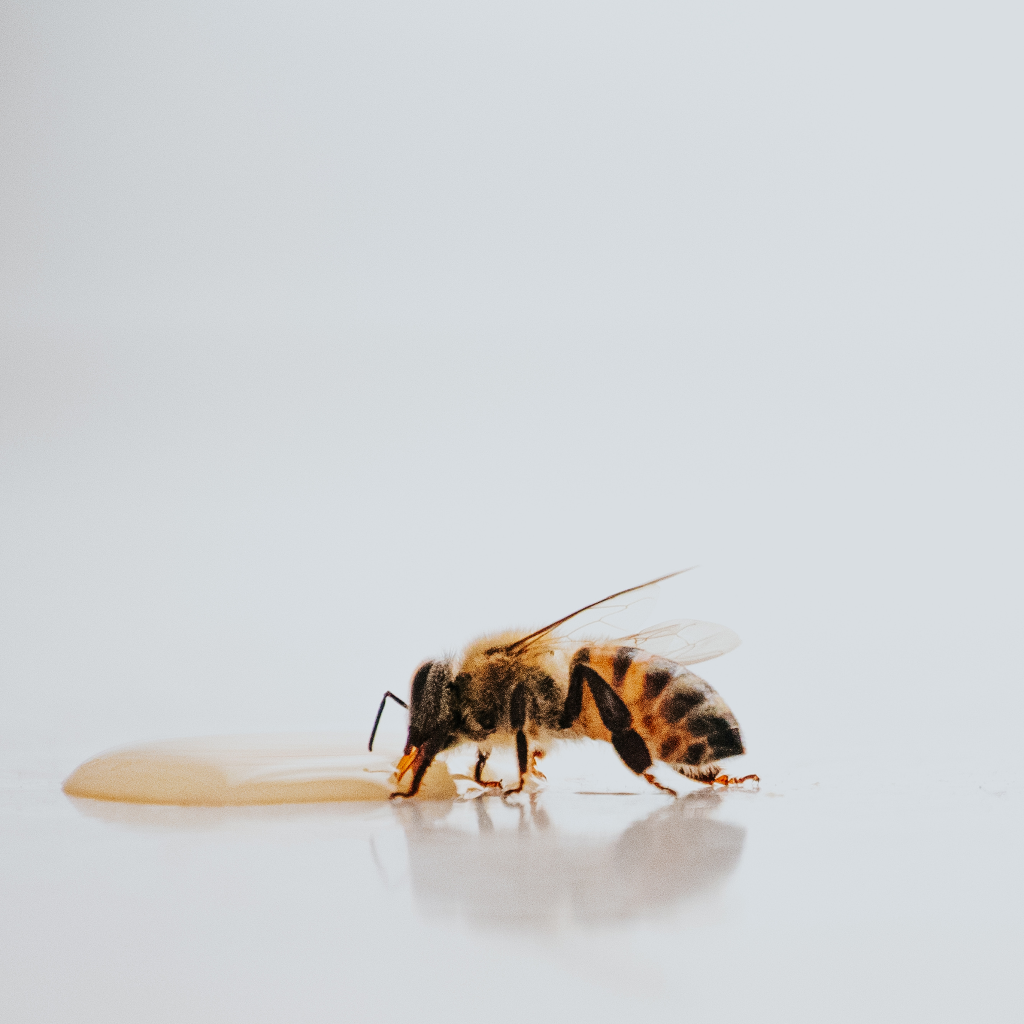Beeswax and honey have been used for centuries to take care of our skin. Both have a whole host of properties that help nourish, protect and heal but if you're vegan beeswax and honey are no no's when it comes to your skincare products. Don't worry, we're here to share with you the vegan beeswax and honey alternatives for your natural skincare regime.
Whilst it's hard to find one ingredient to replace the many benefits of beeswax and honey for your skin, we've asked vegan skincare formulators Marian from Silvan Skincare and Imogen from Bumi Naturals to share some alternative plant based skincare ingredients that share some of the same properties, textures and uses as beeswax and honey.
What are the properties of beeswax?
- It's a stable emulsifier that holds water and oil together to help maintain the consistency of a natural skincare product
- Helps the skin's elasticity and suppleness
- Very gentle so there's a low risk of allergic reaction
- Non comedogenic so won't block pores and allow your skin to breathe
- Anti inflammatory
- Anti bactericidal
- Softens the skin
- Contains anti oxidants to scavenge free radicals
Vegan skincare alternatives to beeswax
Marian advises that "for beeswax, candelilla and carnauba wax are the main alternatives for both texture and the properties they possess".
Carnauba wax comes from the leaves and buds of Brazilian palms. It's similar to beeswax in that it does not usually cause allergic reactions, it forms a protective layer on the skin and it also helps to bind and keep skincare formulations firm. It's made using the leaves so the whole tree isn't cut down but it's still best to check that it's been farmed sustainably.
Marian favours candelilla wax in her vegan balms and cleansers because it has many properties in common with carnauba wax. It also has the same emulsifying properties of beeswax so helps stabilise and bind together water and oil ingredients in vegan beauty products.
There are also some essential oils that can provide similar benefits to beeswax but they don't have the same harder, balm like texture. Lavender is anti allergenic, anti bacterial and non irritating; Patchouli is anti inflammatory; and Thyme which is anti septic, anti bacterial but can cause irritation.
For honey it's more difficult to get a direct swap in your vegan beauty products. Imogen from Bumi Naturals believes that "a good way to look at it would be to separate its properties and look for alternatives for each property and mix them together".
What are the properties of honey?
- Soothing
- Softening
- Humectant/moisture boosting
- Forms a protective later that maintains the skin's barrier
- Anti bacterial
- Healing dry skin conditions
- Full of amino acids, enzymes, vitamins and beta-carotene
Vegan skincare alternatives to honey
For those moisture boosting properties, shea butter or vegetable glycerine are good options.
Shea butter has humectant (moisture boosting), as well as occlusive (prevents moisture loss) and emollient (skin softening) properties. It's quite a heavy ingredient so shouldn't be applied directly to the face but blended with other fatty oils and butters should be fine. Shea butter protects the skin from external factors such as the wind, cold and heat that can dry the skin. It's very good at keeping the skin supple and improving its texture.
Vegetable glycerine has the same sticky consistency of honey and is the same pH as the skin. It helps to draw in moisture. Again, this ingredient is good when blended with others as applying and leaving directly on the skin can dry out the deeper layers of the dermis but it's good for spreadability versus some of the harder waxes or butters that need to be warmed up on the skin before they're applied.
To replace the anti bacterial, anti septic and anti inflammatory properties of honey, tea tree oil is a natural preservative which is anti microbial and can help to heal the skin. It's suitable for all skin types but is particularly effective for acne prone skin. Despite its strong anti bacterial and anti fungal properties, it's a surprisingly gentle oil which is similar to honey for its non irritating traits. Neem oil also has some of the anti bacterial properties that beeswax, honey and propolis have. It's also a good insect repellant.
For the softening, soothing and anti oxidant properties cucumber oil and broccoli oil are ideal swaps.
Cucumber seed oil is rich in fatty acids which helps to boost collagen and keeps the skin supple. It's also anti bacterial and anti inflammatory which helps to soften, heal and refresh the skin. It's also great for skin elasticity because of the amino and organic acids it has which fortify the top layer of the skin.
Broccoli seed oil helps to reduce fine lines and wrinkles because it plumps the skin due to the number of anti oxidants it has. It's a similar texture to silicone which is used to blur and smooth lines as well as hydrate the skin without clogging pores.
As you can see it can be difficult to get all of the properties of honey and beeswax in a single vegan beauty product but we've handpicked some of our favourite vegan alternatives to beeswax and honey that incorporate at least one of the options we've discussed in this blog

